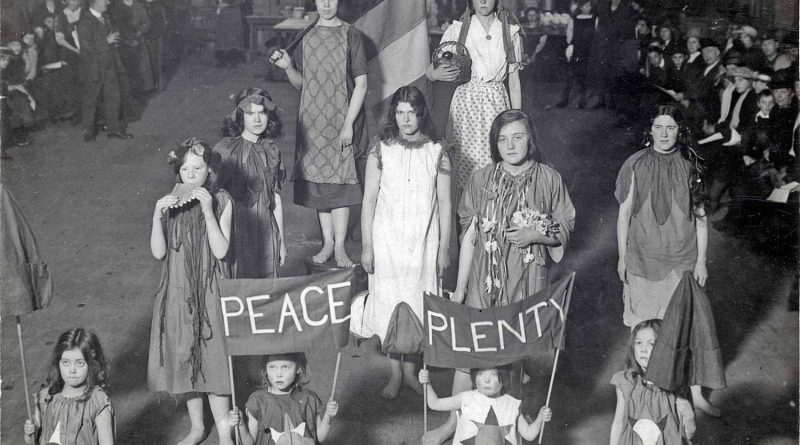Book review: Natural Born Rebel, a biography of Sylvia Pankhurst
Our book reviewer Tabitha Potts reads Natural Born Rebel, Rachel Holmes’ biography of Sylvia Pankhurst, which tells the riveting story of a woman who seems to have led several lives in the space of one.
Born into a left-wing family with a famous feminist mother and socialist father, Pankhurst went on to become a prize-winning artist, a Suffragette, an East London activist and journalist, an unwed mother at a time when this was an extremely subversive act, a Communist, an anti-fascist and finally a high-profile emigrant to Ethiopia and confidante to Emperor Haile Selassie.
This story this complex requires careful telling and Holmes brings a great depth of research and a magisterial authority to the task. The account of Pankhurst’s early years is particularly enlightening as a way to understand the woman she would become.
Her mother Emmeline was an imposing woman, always beautifully dressed, nicknamed ‘The Lady’ by her adoring husband Richard Pankhurst, a lawyer and left-wing activist.
Emmeline was also a socialist and feminist who had absorbed revolutionary politics in Paris and suggested to Richard that they have a free-love relationship rather than marry. The Pankhursts shared a belief system and passed it on to their children – radical feminism, socialism, a powerful work ethic (‘Drudge and drill!’ was Richard’s advice to his family) and a desire for public service.
As a child, Pankhurst disobeyed Emmeline’s rules about eating what you were given at the table, which resulted in physical punishment (meted out by the servants). Her mother remarked to a friend years later that she had to give up punishing Pankhurst as she believed she would die rather than submit. Her elder sister Christabel was the family favourite, and Pankhurst felt overlooked – there was rivalry between the two sisters, which continued into their adult lives.
One has the sense that Pankhurst preferred Richard – she looked down on her mother’s interests such as interior design and fashion and unlike Emmeline (and Christabel) she remained a socialist and pacifist all her life. Richard died suddenly when she was only sixteen years of age, and no one apart from her had realised he was seriously ill. Here Holmes shows insight into how guilt and anger may have driven Pankhurst’s anti-authoritarian stance: adults had let her down.
At times Holmes does shy away slightly from some of the more controversial aspects of Pankhurst’s personal life. As a young woman, Pankhurst became romantically involved with Kier Hardie, a much older married man (and later leader of the Labour Party) who was a friend of the family. Holmes describes it as a meeting of soul-mates and equals despite the fact that the age difference and the fact that Hardie had other affairs made it very difficult for Pankhurst. Tellingly, Pankhurst did not mention his wife and children in her obituary of Hardie.
However, it’s clear that Pankhurst was extremely tough, mentally and physically, a survivor as Holmes rightly says. The winner of several art scholarships, she gave up her art studies in Venice without complaint to come home and help the cause. Imprisoned various times as a militant Suffragette, she endured numerous hunger strikes and force-feeding (her accounts of this makes grim reading) as well as sexual assaults from men she encountered in the course of her work.
Pankhurst lived and worked in Bow, East London from 1913 onwards and became part of the local community there. She set up a break-away women’s union there, the East London Federation of Suffragettes or ELFS, based first in Bow Road and then on the Roman Road. Pankhurst trained an army of women in East London (dubbed ‘Sylvia’s Army’ by the locals) and often fought in the streets as well as in the pages of the Women’s Dreadnought, the newspaper she founded in 1914, which was sold on the streets of the Roman Road.
The scale of her achievements are extraordinary; not only as an activist and author but also in the work she did helping working-class women of the East End and elsewhere in their struggles to feed their families (with her wartime low-cost restaurant and her milk distribution for babies), bring up their children (with her mother and baby clinics, and her day nursery and Montessori schools), get fair pay and stand up to their employers.
When she became pregnant by her anarchist lover Sylvio Corio in her mid-forties, Pankhurst was rejected by her mother and sister (who even disowned her in the newspapers), but she battled on, refusing to bow to convention and marry Corio even after she’d had their son Richard. The sense the book gives of her personality is of a woman driven by intellectual and moral principles in every area of her life, no matter how difficult her existence became as a result – truly, for Pankhurst the political was personal, and vice versa.
Natural Born Rebel is published by Bloomsbury and available to buy from Waterstones.
If you liked this article, read Tabitha Potts’ review of The Little History of the East End.


